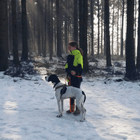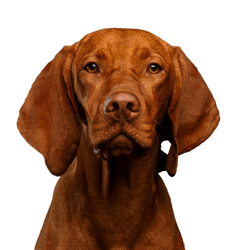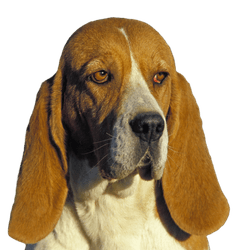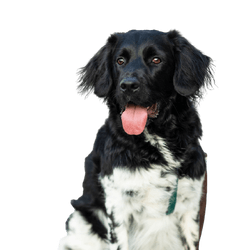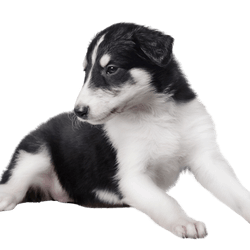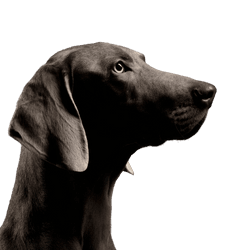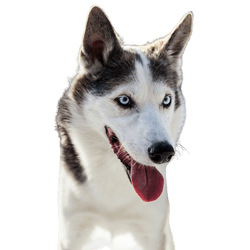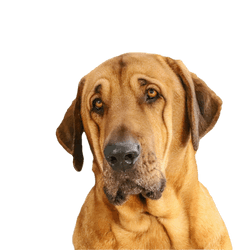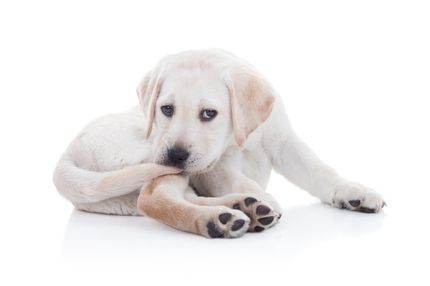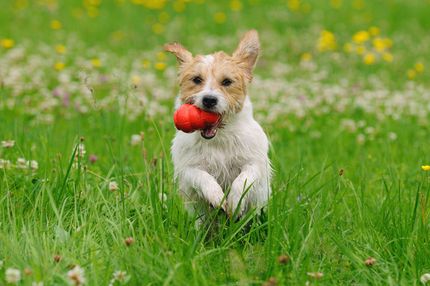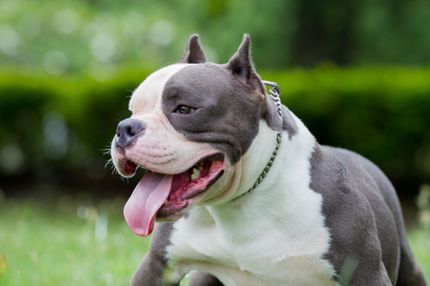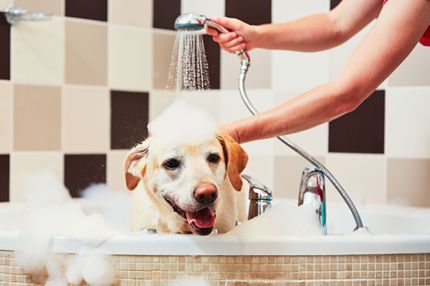Facts & Origin
Origin and use
The Wirehaired Vizsla originates from Hungary and is a versatile hunting dog. It is used in the field, in the forest and in the water and is characterized by a pronounced sense of detection, firm pointing, excellent retrieving behaviour and single-minded pursuit of swimming tracks. Its great love of water and robustness make it the ideal dog even in difficult terrain and weather conditions. Despite its working nature, it can also be kept well in an apartment due to its even-tempered nature.
Origin of the breed
The Wirehaired Vizsla was deliberately bred in the 1930s by crossing the Shorthaired Vizsla with the Wirehaired German Pointing Dog. Most of the breed characteristics are the same as those of the Short-haired Vizsla, but the Wire-haired Vizsla is more robustly built.
A dog for hunting
The Wirehaired Vizsla is a versatile hunting dog that is equally at home in the field, forest and water. Its particular strengths lie in pointing, retrieving and tracking, especially in water. He has a keen sense of detection, works with concentration and is known for his love of water. Thanks to its stamina and off-road ability, it is ideal for use in rough conditions.
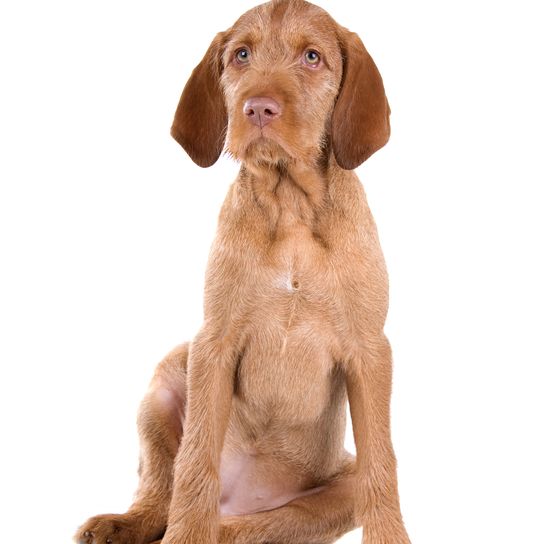
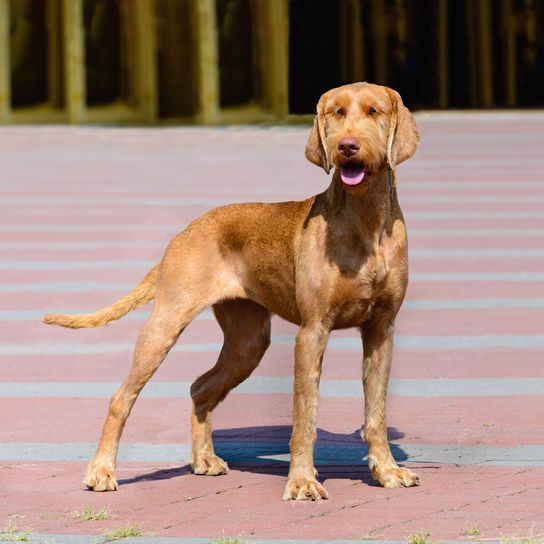
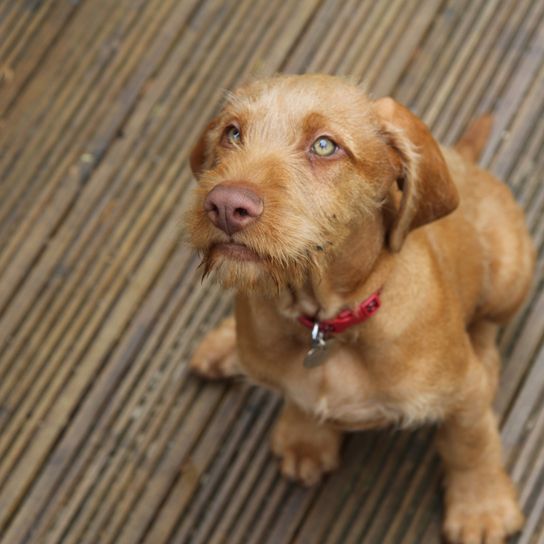
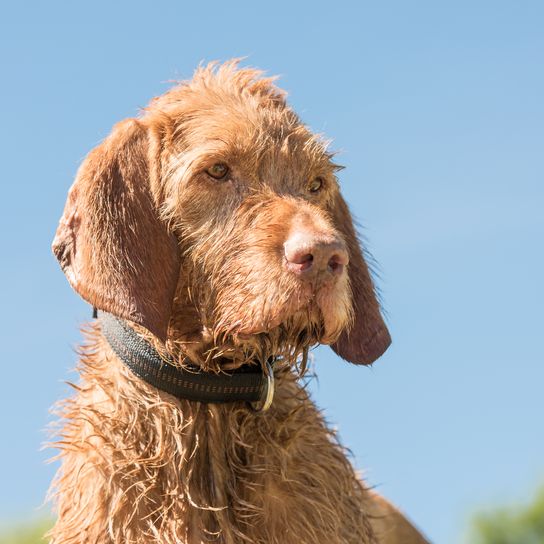
| Alternate Name | Drótszőrű magyar vizsla, Wire-haired Hungarian Pointing Dog |
| Origin | Hungary |
| Life expectancy | 12 - 14 years |
| Care requirements | low-maintenance |
| Activity level | high |
| FCI group | Continental Pointing Dogs |
| AKC group | Sporting Group |
| KC group | Gundog Group |
Attitude, character and temperament of the breed
Character and temperament
The Wirehaired Vizsla is affectionate, easy to train and self-confident. It does not tolerate rough treatment, is leader-oriented, passionate about searching, persistent and has an excellent nose.
Husbandry and suitability
The Wirehaired Vizsla is suitable for active hunters, but is also suitable as a family dog as long as its needs are taken seriously. It is easy to train, but needs clear leadership, plenty of exercise and mental challenges. Due to its adaptability, it can be kept well indoors - provided it is given enough to do outside.
Character
Usage
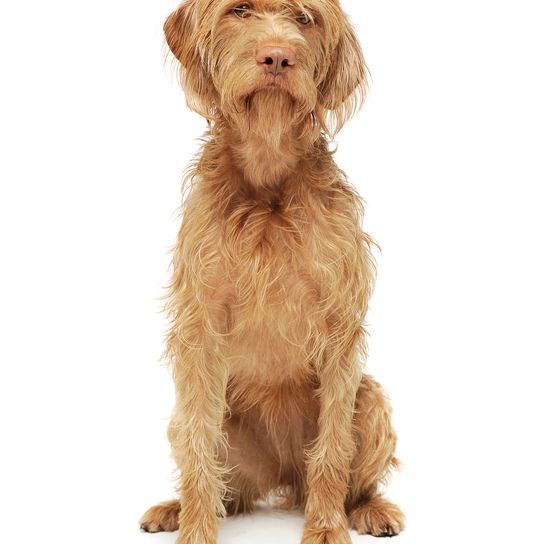
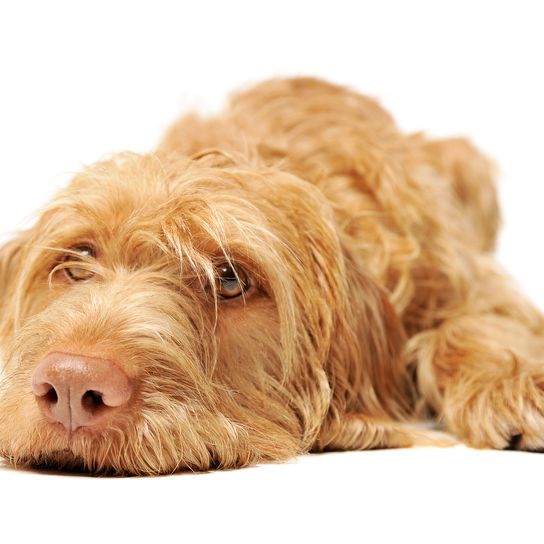
Coat and care
Typical of the breed is the dense, wiry coat with a protective undercoat. It is water-repellent and protects the dog well from the weather and injuries when hunting. The coat is semi-milky yellow in various shades. Small white markings on the chest or toes are permitted. Grooming is uncomplicated - regular brushing is usually sufficient to keep the coat clean and healthy.
Checks
Regular checks of the ears and eyes are important to avoid infections and other problems. Regular claw tr imming and teeth brushing should also be part of the plan.
Breeding and responsibility
- Responsible breeding practices: Reputable breeders are committed to the health and welfare of their dogs and avoid overbreeding.
- Genetic testing: Potential breeders should test for hereditary diseases to ensure healthy litters.
- Socialization and training: Early socialization and training are crucial for the development of a balanced and socially compatible dog.

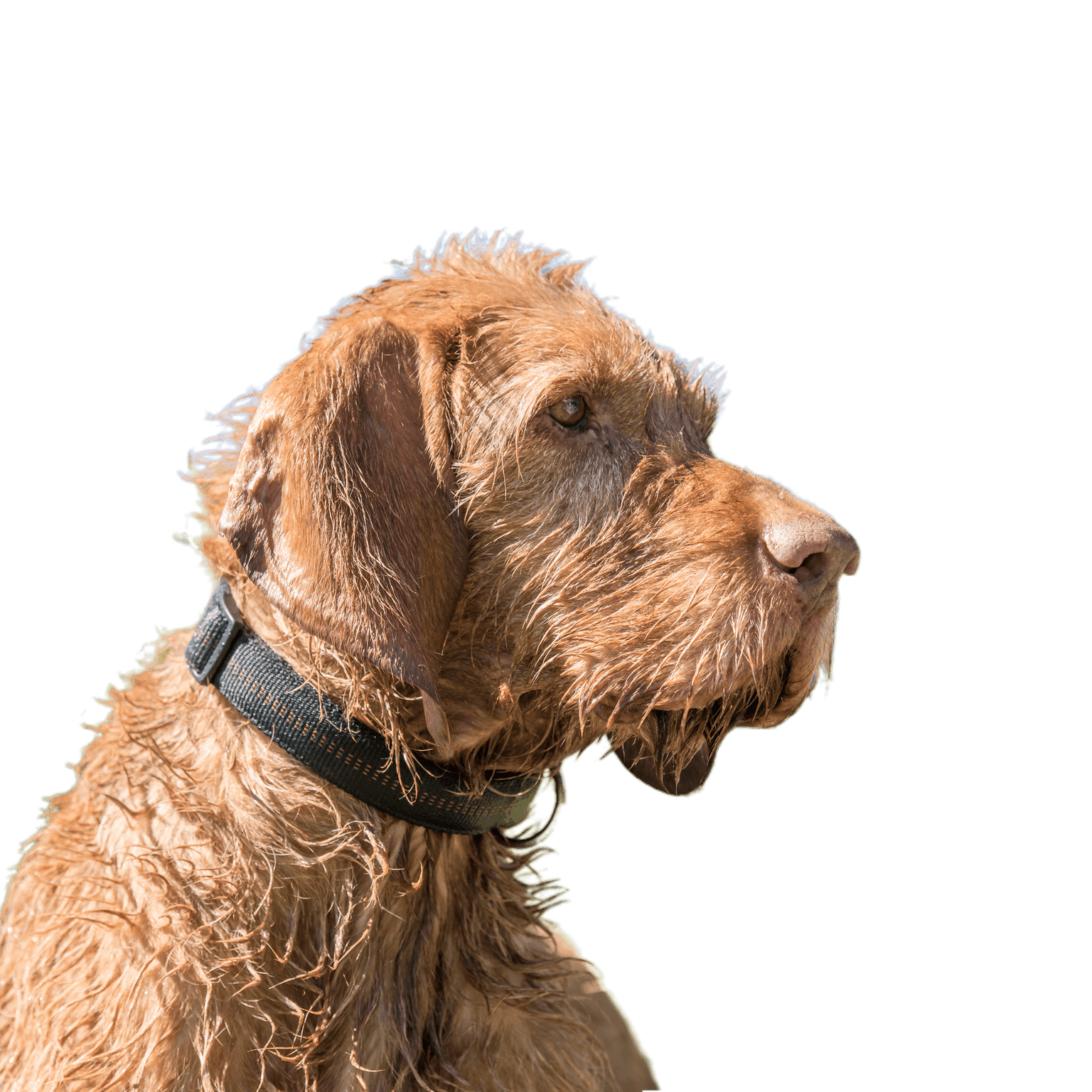
Appearance and conformation
The Wirehaired Vizsla is a lively, creamy yellow dog with a dry, lean build. The body length slightly exceeds the height at the withers, the chest is deep and the muzzle is slightly shorter than half the length of the head. It conveys stamina, efficiency and undemandingness.
Head and expression
The head is moderately broad, slightly domed, with a slight frontal furrow and moderate stop. The nose is broad, well developed and color-coordinated with the coat. The muzzle is blunt, strong and with a straight nose bridge. Tight lips and strong jaws with a complete scissor bite make for a striking profile. The eyes are slightly oval, brown, lively and intelligent in expression, the ears are set medium high and lie in a V-shape on the cheeks.
Neck, back and chest
The neck is of medium length, strong and well muscled, without loose throatiness. The back is firm, straight and well muscled, as are the short, strong loins. The croup is broad and slightly sloping. The chest is deep, broad, with well developed forechest and moderately arched ribs. The belly line is slightly tucked up and taut.
Tail
The tail is set on medium high, strong at the base and tapers to the tip. In countries where docking is not prohibited, it can be shortened for hunting. Undocked, it reaches to the hock and is carried straight or sabre-shaped. It is well coated.
Limbs and gait
The forelegs are straight and well muscled with strong bones. The shoulders are sloping, the upper arm long, the elbows close-fitting. The paws are slightly oval, with strong toes, brown nails and tight pads. The hind legs are well angulated and muscular, with powerful drive. The trot is energetic, expansive and light-footed, the canter enduring. Passing gait is undesirable.
Coat and color
The wire-haired coat is dense, close-fitting and dull. It measures 2-3 cm in length, has a protective undercoat and is particularly weatherproof. A distinctive, strong beard forms on the muzzle and the eyebrows are accentuated. V-shaped hairbrushes on the sides of the neck are typical. The coat color is uniformly semi-yellow, the coat can be slightly darker. White markings on the chest (max. 5 cm in diameter) or toes are permitted, other colors such as red or brownish are undesirable.
Size and overall impression
The height at the withers is 58-64 cm for males and 54-60 cm for females. A medium size is desired - however, balance, symmetry and a harmonious appearance are more important than exact measurements. The Wirehaired Vizsla embodies the ideal, efficient hunting dog with versatile use and a pleasant temperament.
| Fur length | short |
| Fur | rough-haired |
| Ear shape | Floppy Ear |
| Tail | lang |
| Anatomy | rugged |
| Size ♀ | 54 - 60 cm |
| Weight ♀ | 20 - 30 kg |
| Size ♂ | 58 - 64 cm |
| Weight ♂ | 20 - 30 kg |
| Suitable For | Children |



FAQ
-
The Wirehaired Vizsla has a wiry, weatherproof coat with a beard and bushy eyebrows, is somewhat more robustly built and was specially bred for tough hunting conditions. Both breeds are very similar in temperament.
-
Yes, thanks to its friendly, affectionate and even-tempered nature, the Wirehaired Vizsla is a pleasant companion for active families - provided it is given sufficient mental and physical exercise.
-
A lot - as a hunting dog, he needs long walks, play, free running and ideally also mental tasks such as dummy training or nose work every day.
-
Yes, he is intelligent, eager to learn and eager to please. Consistent but loving training without harshness is important, as he reacts very sensitively to rough handling.
-
The wiry coat is relatively easy to care for. Regular brushing is usually sufficient. In spring and fall, the dead hair should be removed (trimmed) by hand if necessary.
-
Yes, even very distinctive. He was bred specifically for hunting and shows typical behavior such as tracking, pointing and retrieving.
-
Basically yes - he adapts well. However, it is important that he gets enough exercise and activity. It would not be species-appropriate to keep him purely indoors without exercise.


